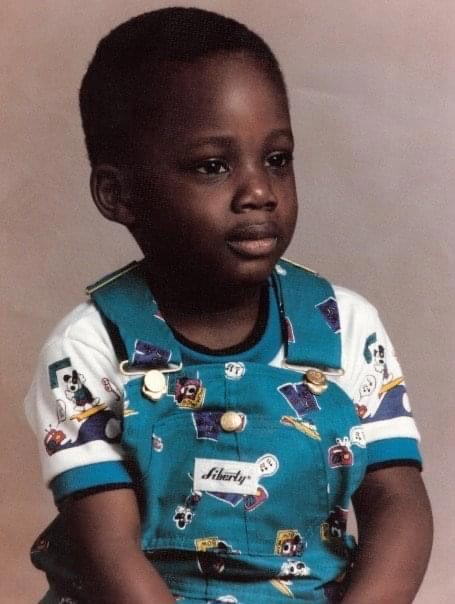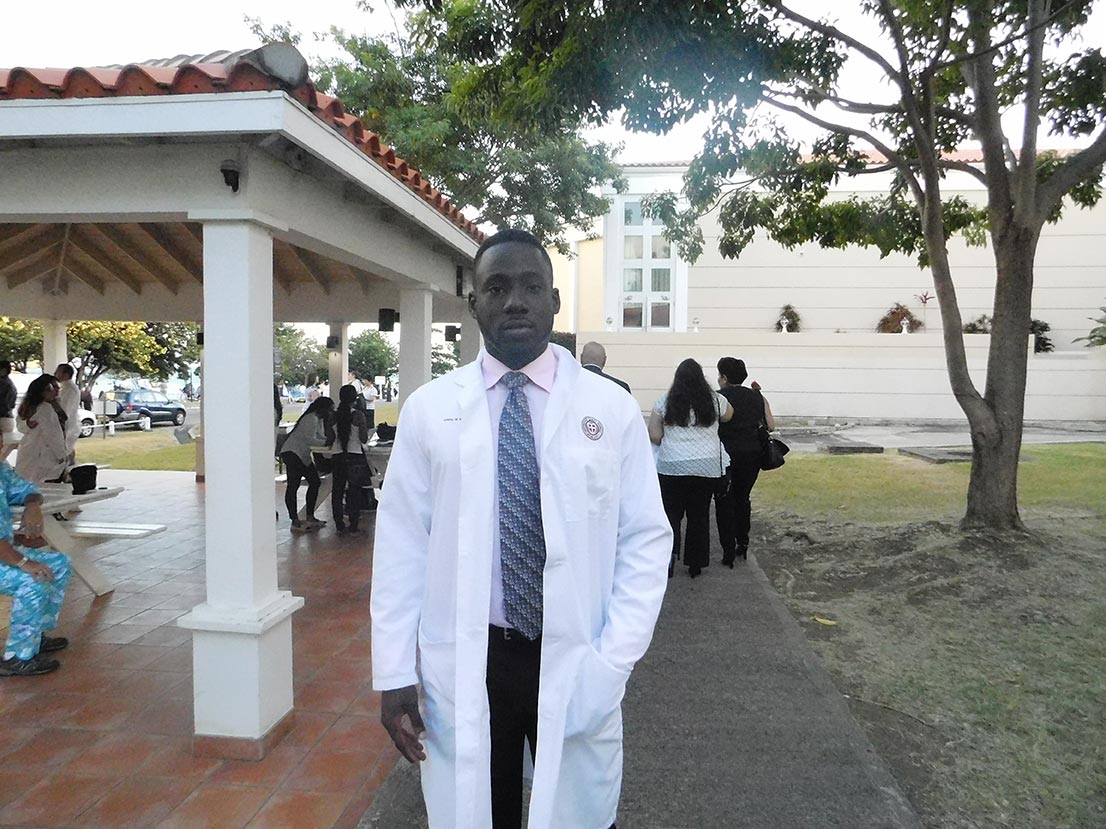Getting To Know Dr. Madedor
Dr. Madedor: Being the child of a native African-born family, I witnessed a myriad of healthcare struggles in my family’s home country, where underserved populations can be neglected due to a lack of access to information and tools for care. I also gained intimate knowledge of the disadvantages that stem from a lack of healthcare access when my mother pushed me to volunteer at the local veteran’s affairs hospital and homeless shelter at a young age. I also went on mission trips with our family church. Those experiences resonate with the soul and need to be addressed. I feel that, as a physician, I can do that.
But it was my mother’s surgery that made me appreciate medicine. My mother experienced years of lower back pain, which moved toward her neck. At the time, I was too young to understand why my mom was in pain, or the procedures and techniques for managing it. However, one thing was made clear: physicians could heal, and they helped my mother. This first-hand experience opened my eyes to the world of medicine and gave me my first glimpse at how medicine can take signs, symptoms, and environmental factors into consideration to see the whole picture and make a better diagnosis.
Dr. Madedor: Means and access. Patients usually fall into those two categories. In terms of means, we’re talking about money, resources, insurance, and connections to get to a primary care provider or the medical help you need. For financial reasons, many patients don’t see physicians. An emergency department visit can cost thousands of dollars even without surgery; and with surgery, you can be looking at six or seven figures for the cost.
Access is just as bad as means because people may have the money or insurance, but if they don’t have the time to go for care then nothing will be done. Several patients I see in the clinic skip appointments because they don’t have a babysitter or they work long days, and the list could go on.
Dr. Madedor: I don’t believe it has changed me personally because I have always fought for the disenfranchised or less fortunate. As an African American, I live this fight every day. So, with my patients, I can empathize with them. I relate to them on a personal and ethnic level. A lot of people say ‘hi’ to me on the hospital floors or in the clinic and are happy to have their skin color represented by the physician they see.


Dr. Madedor: When I worked at Brooklyn Hospital as a medical student, there are incidents I can always lean on that fueled my fire. Working with SGU clinical faculty taught me not to see a patient as a pit stop but, as a physician, you become their conduit who will guide them to their next destination. With that in mind, I did my best to learn their cases better and do thorough chart reviews so I could prevent potential oversights. Then in the rooms, I treated them like human beings, because patients are more than stats, and sometimes we forget that with a busy schedule.
Dr. Madedor: I’m applying for an infectious disease fellowship as we speak. I hope to join a prestigious program for HIV management and help that population the best way I can. I was given guidance by the wonderful infectious disease team during my clinical rotations at Brooklyn Hospital, and I have never looked back.
Dr. Madedor: I felt at home at SGU from Day 1 through my clinical rotations. SGU was perfect for me because of the diversity of the student body, professors, and the opportunity for new cultural experiences on the island. I was able to improve my study skills and clinical acumen and expand my horizons. The experience I had was one of the most challenging and exhausting journeys of my life. I wouldn’t change that for the world because it prepared me for the roadblocks ahead.
SGU took a student who was a potential diamond in the mine and refined him. Now I am a resident living out my dreams amongst the elite in my craft. From the days of eight-to-10-hour study dates, student support sessions, and rounds as a medical student, SGU provided the necessary environment for me to grow. With great resources, teaching, and great hospitals to rotate at, my experience couldn’t have been any better.
Dr. Madedor: Dr. Madedor: My favorite part of SGU was getting food from all the vendors across the campus and island after class. The cultural hot spot was all in the foods we ate. From Grenadian oil down to Indian Chicken Tikka Masala to Greek Kitchen’s special, you never had a dull moment with your plate and stomach. I can still taste the rotis!
